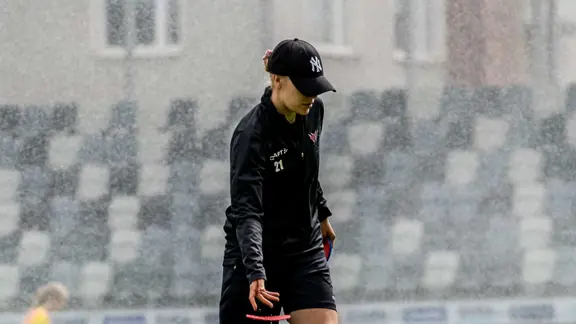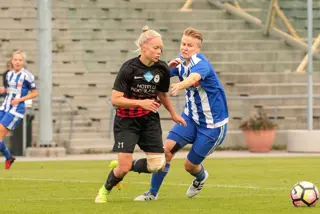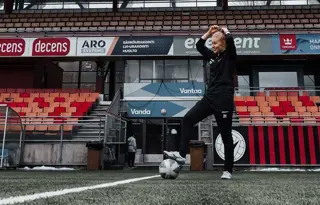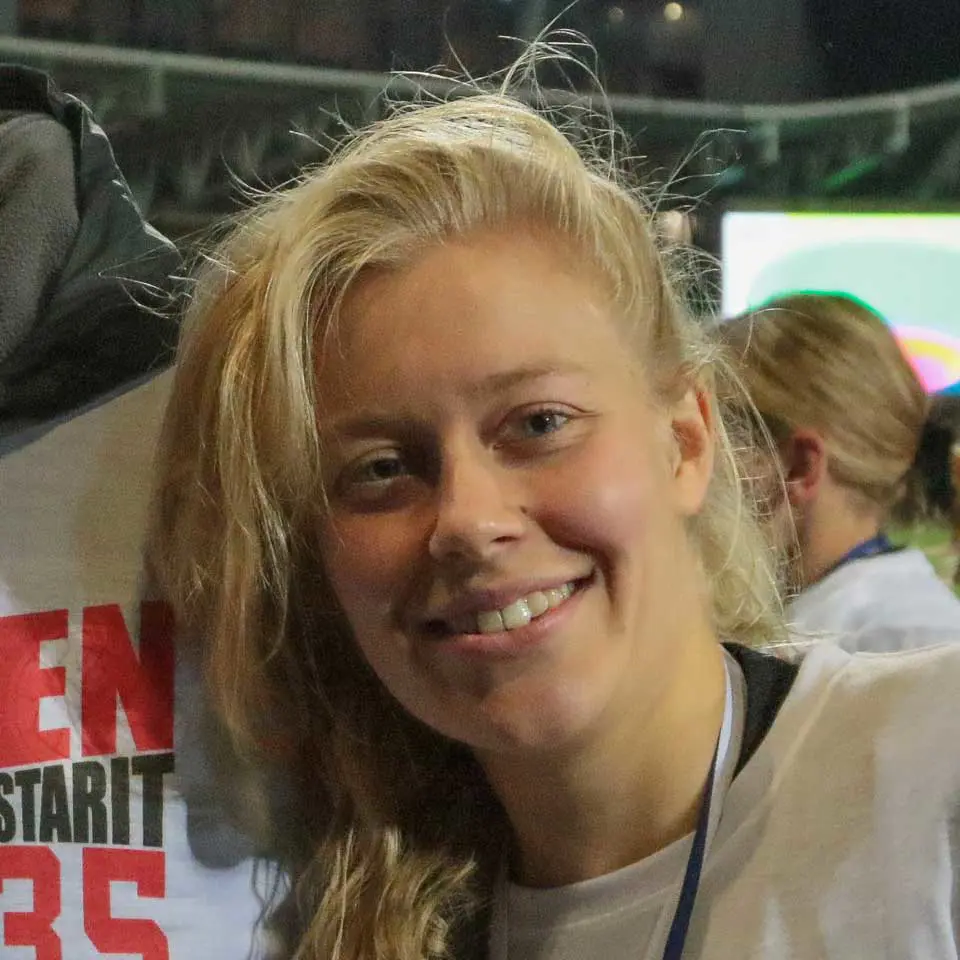Player Op-Ed
Tia-Maria Jaakonsaari: "I wouldn’t be here if I didn’t ask for help"

The following article contains mention of suicide, which some readers may find distressing.
About the author
Tia-Maria Jaakonsaari, a six-time Finnish champion and four-time Finnish Cup winner, played for PK-35 Vantaa for 14 years. On World Mental Health Day, the former midfielder writes about the importance of reaching out for professional mental health support.
By Tia-Maria Jaakonsaari
In Finnish we have a word ‘tukpipilari’ which translates as ‘pillar’ – a term used both in the physical and abstract sense for something that supports, holds up. Football and my partner were my pillars. Then, both were gone from my life in the space of a few months.
I suffered an unknown illness that, despite multiple doctor visits and operations, left me with long-term throat pain; at times the pain was that bad I couldn’t leave home. I felt side-lined from life. Eventually I had to stop playing football. When you’ve been part of the same club for 14 years, it becomes your second family and it’s hard to leave that behind.
Around the same time, an eight-plus-year relationship with my partner ended. When you lose someone so close to you, it can send you into a spiral. For me, it was a spiral of self-destruction. I had lost someone from my life, even though they were alive. It was like half of me was taken away.
Quitting is not in my blood, but the physical and mental pain I was experiencing reached a point where I just wanted it to stop for good. Inside I was screaming. I wanted the pain to end. I thought about jumping in the icy ocean and being in peace forever.

I was seconds away from walking out the door and doing it. I stopped. Instead, I called a friend. I asked if I could stay the night. They said yes. A night turned into a week. A week turned into a month. Without that support, I wouldn’t be here today.
I had sought professional help before, but only after this things started to move forward. Right now, I can say I’m doing better compared to last year and the year before. I’m not yet where I want to be, but I’m working on it. The first step on that process for me was asking for help.
Asking for help as a footballer can sometimes feel counterintuitive; we’re conditioned to show strength, not weakness. We’re told to ‘toughen up’ – which is the wrong attitude when it comes to mental health and wellbeing. If you can’t say that you’re struggling, how can someone help you?
I was open about my situation, but in my mind I still suffered alone until truly reaching out for help, and I wanted to use my experience in a positive way to help other people, other players, who themselves might be suffering. It shouldn’t be a taboo to say that I’m not well. That I’m struggling. That I’ve thought about killing myself. It’s not nice to hear, but that’s the reality, right?

I posted on Instagram about what I had been going through and received messages of support from other players and acquaintances who felt it was important to speak about this.
Luckily my coaches were understanding, but I think clubs can and should do more to support players’ mental health. If there is no-one that players can talk to, I feel like we’ve let them down. Sometimes it can be easy to always look through a football-lens and forget about a player’s holistic wellbeing; some things happen in life that don’t involve football, and it can drastically affect your mind. How can you thrive on the pitch and give 100 percent if everything back home is not okay?
The players’ union in Finland has an online portal where footballers can reach out and receive help within 24 hours by a qualified mental health professional, which is a good first step. You can also request information about helping a team-mate who may be struggling.
I’m one of over a hundred players involved in the Drake Football Study, a 10-year medical examination by FIFPRO looking at the physical and mental health of current and former players, starting during their careers and transitioning into retirement. I’ve had the injuries and the struggles on and off the pitch; I know what it can do to your mind and body. I hope the results the Drake Study produces can help the physical and mental health of the next generation of players.

I may no longer be able to play football, but I’m still involved in the game; I received my UEFA B licence and I’m currently doing my A licence. I’m involved in coaching here in Finland and saving for a degree in sports psychology. I want to help others who may be struggling and help them find the right support.
For any player reading this that might be struggling, ask for help. What’s the worst thing that can happen from it? Don’t be afraid of the judgement – because if someone judges you for feeling bad or asking for help, it’s them that’s in the wrong. As humans we’re allowed to feel the good and the bad. We are not robots.
The worst thing you can do is blame yourself and suffer in silence. None of us asked for this, to be in constant mental or physical pain – you never intended to put yourself in this situation. And if people don’t know how you’re feeling, how can they help you?
Speak up. Ask for help. You are not alone.
Research shows that up to 38 percent of footballers suffer from mental health symptoms during their career.
FIFPRO, with the help of various mental health experts, created a toolkit for its member unions to help educate players about symptoms, stressors, stereotypes and how to empathise.
- Everything you should know about mental health and wellbeing
- Signs and symptoms to help you identify mental health issues
The Drake Football Study is seed-funded by The Drake Foundation and supported by Amsterdam University Medical Centers, Mehiläinen (Finland) and Push Sports (The Netherlands).
With thanks to Kalevi Hämäläinen for the match action images.
